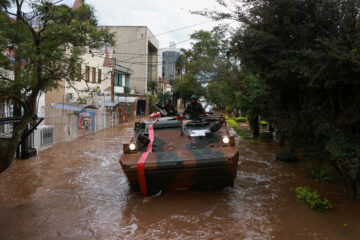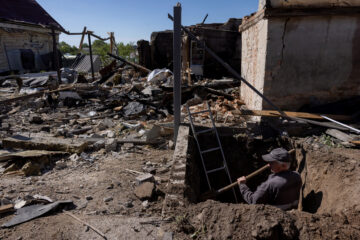Rome mayor demands emergency measures as water rationing looms
The mayor of Rome urged the government on Friday to intervene to prevent water rationing in the drought-hit Italian capital.
Taps will run dry for up to eight hours a day from Monday for 1.5 million Romans after authorities told utility firm ACEA to stop withdrawing water from a nearby lake.
Lake Bracciano is running low following weeks of only minimal rainfall and unusually high temperatures.
"It would be unacceptable to deprive Rome of water," Mayor Virginia Raggi, a member of the anti-establishment 5-Star Movement, said in a statement.
"The government must intervene with the instruments at its disposal. A state of emergency must be declared."
Wildfires have torn across parts of southern Italy and reached Rome\’s coastal fringe earlier in July, a month in which rainfall has been 72 percent down on normal levels, according to Sky Italia\’s weather TV channel.
The center-left government said it was reviewing Raggi\’s request and would make a decision in coming days.
The surface level of Lake Bracciano, about 30 km (19 miles) north of Rome, has dropped by about one meter, revealing dry sand spits.
The lake supplies roughly 8 percent of Rome\’s water needs and ACEA says that if it is taken off the grid, it will have to impose rationing.
"I am most concerned about water for hospitals, care homes, medical centers and, last but not least, to supply the fire service," Raggi said.
Rome\’s water woes have taken on a political edge, with Raggi\’s opponents accusing her and the 5-Star of ignoring the gathering drought crisis.
The 5-Star has said the region, which is run by the ruling Democratic Party, could have kept Bracciano open. ACEA lost a court appeal on Thursday against the order to stop tapping the lake.
The government has already declared a state of emergency because of drought in the northern provinces of Parma and Piacenza, freeing up 8.65 million euros ($10 million) to buy drinking water tanks and invest in infrastructure.
Part of the problem in Rome is due to decayed and ruptured pipes, which leak about 40 percent of the water they carry, leading to complaints about long-term under-investment.
The prospect of turning off the taps in one of Europe\’s most popular tourist cities has caused dismay in the hospitality sector.
"Water is essential, to wash the dishes and cutlery, to keep the restaurant clean," said Emmanuele De Angelis, who owns a restaurant near the Villa Borghese park.
"If this happens … how would we work? We would need to close. Who would refund us if we close?"
SOURCE: REUTERS
[do_widget_area inner_adsbar]









